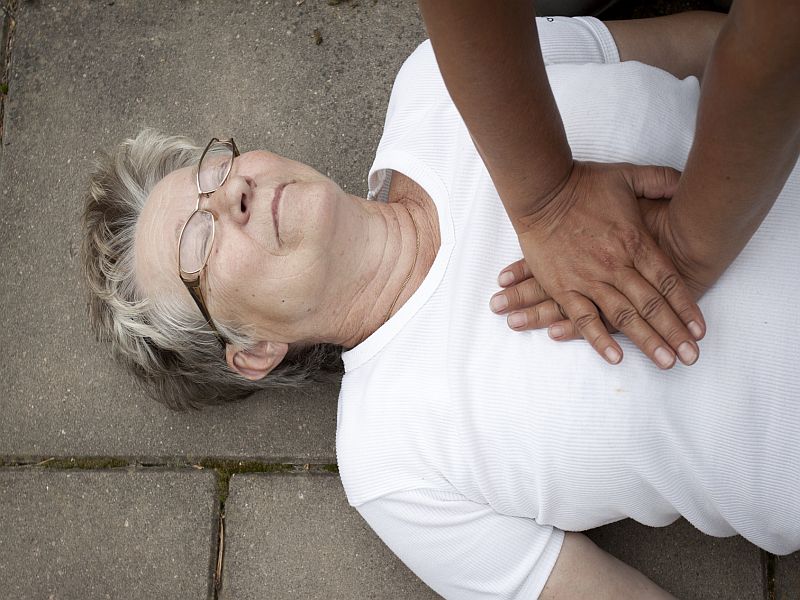

Chances of Successful CPR Dwindle as Seniors Age
Study finds fewer older Americans are trained to do it or receive it if neededTuesday, May 23, 2017

TUESDAY, May 23, 2017 (HealthDay News) -- A new study finds that older Americans have little CPR training, and they are less likely to get CPR when they suffer cardiac arrest at home.
"The new data affirms the need for targeted training in the older population," said senior study author Dr. Benjamin Abella, an associate professor of emergency medicine at the University of Pennsylvania's Perelman School of Medicine.
"There is a striking relationship between age and CPR training and delivery that is really important to better understand," Abella said in a university news release.
The researchers estimate that more than 350,000 Americans suffer from cardiac arrest outside the hospital every year, and only a third receive CPR. With cardiac arrest, the heart suddenly stops beating, and speedy resuscitation is critical.
The researchers reached some of their conclusions by examining responses to telephone surveys given to more than 9,000 people in 2015.
While almost two-thirds had received CPR training at some point, three groups -- older, less educated and poorer people -- had less training. Those 60 and older were half as likely to have gotten training as those under 49.
The researchers also examined statistics from a registry and found that people who suffered cardiac arrest at home were less likely to get CPR if they were older. That wasn't the case when bystanders performed CPR outside the home.
"This is a teachable moment," Abella said. "We need more aggressive, innovative and creative efforts to reach the population at risk. For example, we should consider training videos while you're waiting for a train, renewing your driving licenses, or in the waiting room before you see your doctor."
The study was published recently in the Journal of the American Heart Association.
SOURCE: Perelman School of Medicine, University of Pennsylvania, news release, May 17, 2017
HealthDay
Copyright (c) 2017 HealthDay. All rights reserved.
News stories are written and provided by HealthDay and do not reflect federal policy, the views of MedlinePlus, the National Library of Medicine, the National Institutes of Health, or the U.S. Department of Health and Human Services.
- More Health News on
- Cardiac Arrest
- CPR




























.png)











No hay comentarios:
Publicar un comentario